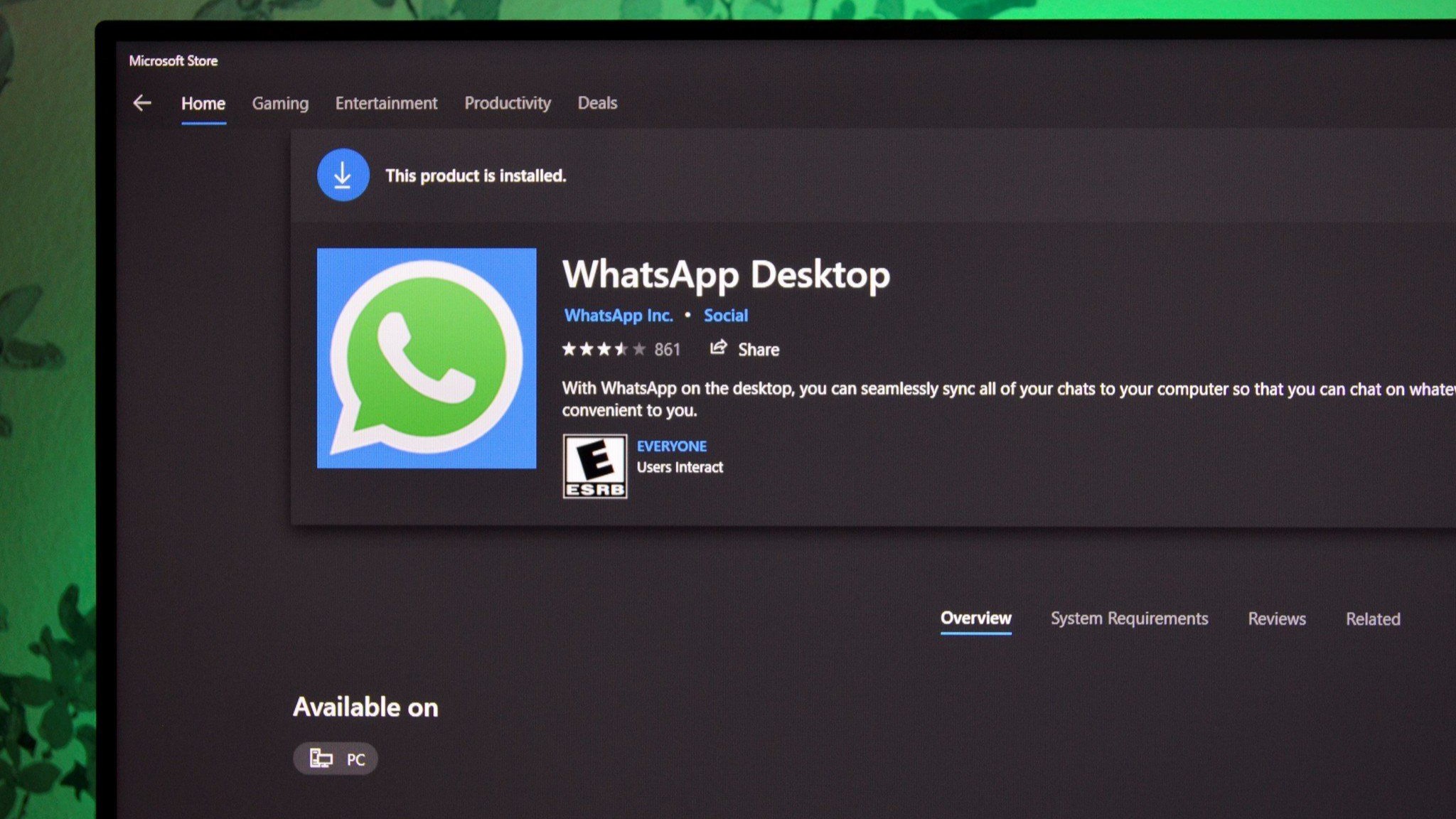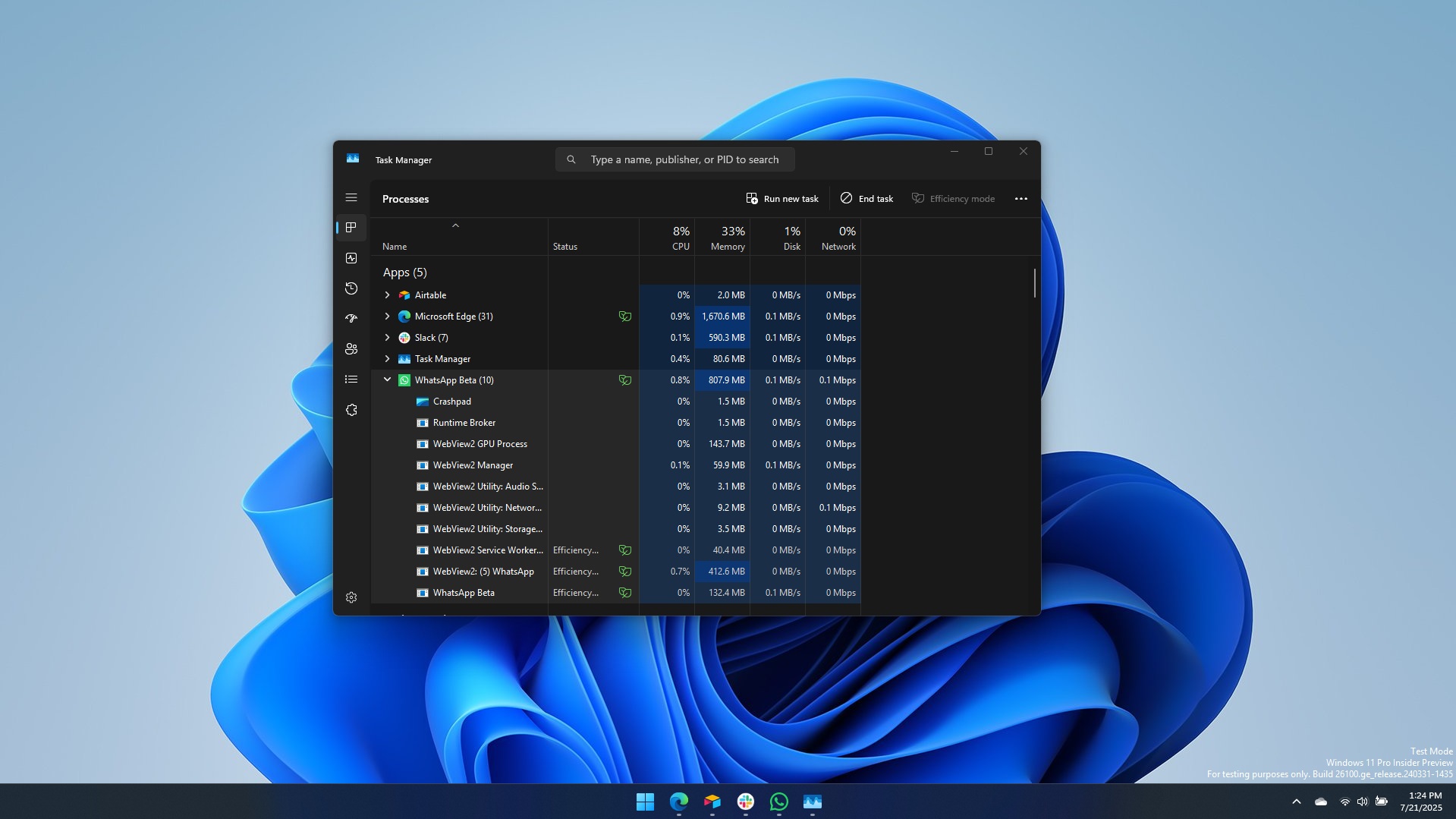WhatsApp will throw out "increased performance and reliability" by downgrading its Windows app — here's what you'll lose (and gain)
iPad users will soon gain a native WhatsApp app, while Windows users will lose theirs to a web wrapper.

All the latest news, reviews, and guides for Windows and Xbox diehards.
You are now subscribed
Your newsletter sign-up was successful
WhatsApp appears set to drop its native Windows app to shift to a web wrapper. The latest version of WhatsApp Beta looks significantly different from the app currently available to everyday users.
The new version of WhatsApp places the web interface of the communication app inside a web wrapper.
Whether it's right to call it “enshittification” — a term popularized to describe the gradual degradation of digital services — or simplification is a matter of debate. The shift to a web app makes it easier for WhatsApp to maintain a single code base that extends across platforms.
I suspect some WhatsApp users will focus more on the negatives, including the fact that the web app uses more RAM than the native version of WhatsApp. WhatsApp also looks out of place on Windows 11, since it no longer uses the same design language as the operating system or well-designed apps that adopt the same UI elements.
Notifications will also work differently with the WhatsApp web wrapper.
Moving to a web app adds some functionality, though. The current beta version of WhatsApp has more options for the Status and Communities section of the app.
It's not just me that claims the wrapped web app is worse than a native Windows app, an official WhatsApp support document says as much (albeit implicitly):
All the latest news, reviews, and guides for Windows and Xbox diehards.
"To improve the WhatsApp experience for desktop users, we've developed native apps for Windows and Mac operating systems. The Windows and Mac apps provide increased performance and reliability, more ways to collaborate, and features to improve your productivity."
The native Windows app mentioned in that document is the one that is being replaced by the web app, assuming the new version of WhatsApp makes it out of beta.
The same document lists several features that were once exclusive to the native version of WhatsApp, but I believe some of those items have since made their way to the web version of the app. For example, I just used WhatsApp Beta on my PC to make a call.
Some of the features listed were never exclusive to the native version of WhatsApp, such as being more productive because you can type on a larger keyboard.
WhatsApp reiterates the performance and reliability of a native app, stating that version of WhatsApp is "Designed and optimized for your computer’s operating system."

The change was first spotted by Neowin, which found that the new WhatsApp used 30% more RAM than the native version of the app.
The timing of the switch is particularly odd, given that WhatsApp started testing a native iPad app in May of this year. Notably, the iPad version of WhatsApp entered public testing roughly 16 years after WhatsApp launched for iPhone.
I'm curious to see how people react to the change. Many developers and app enthusiasts are purists who prefer native apps. My guess is that many people would only care about the change if it caused significantly worse performance or took away features they use regularly.
What are your thoughts on WhatsApp switching from a native app to a web wrapper? Let us know in the comments below.

Sean Endicott is a news writer and apps editor for Windows Central with 11+ years of experience. A Nottingham Trent journalism graduate, Sean has covered the industry’s arc from the Lumia era to the launch of Windows 11 and generative AI. Having started at Thrifter, he uses his expertise in price tracking to help readers find genuine hardware value.
Beyond tech news, Sean is a UK sports media pioneer. In 2017, he became one of the first to stream via smartphone and is an expert in AP Capture systems. A tech-forward coach, he was named 2024 BAFA Youth Coach of the Year. He is focused on using technology—from AI to Clipchamp—to gain a practical edge.
You must confirm your public display name before commenting
Please logout and then login again, you will then be prompted to enter your display name.

